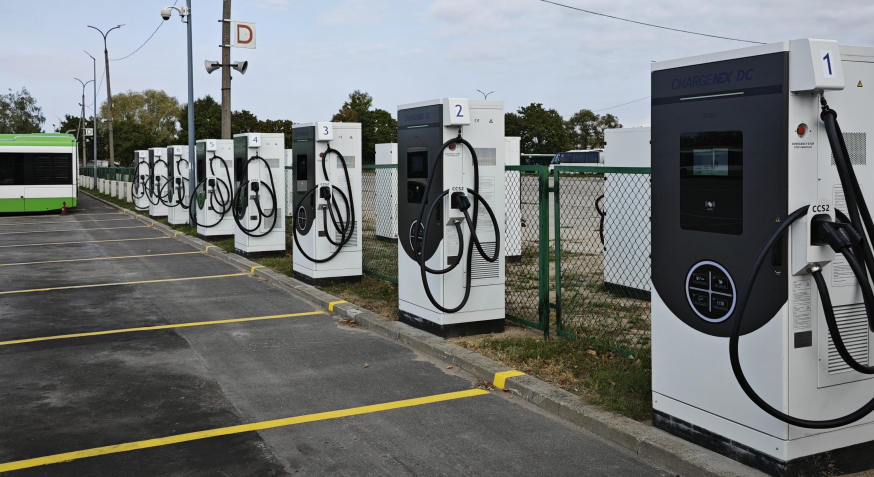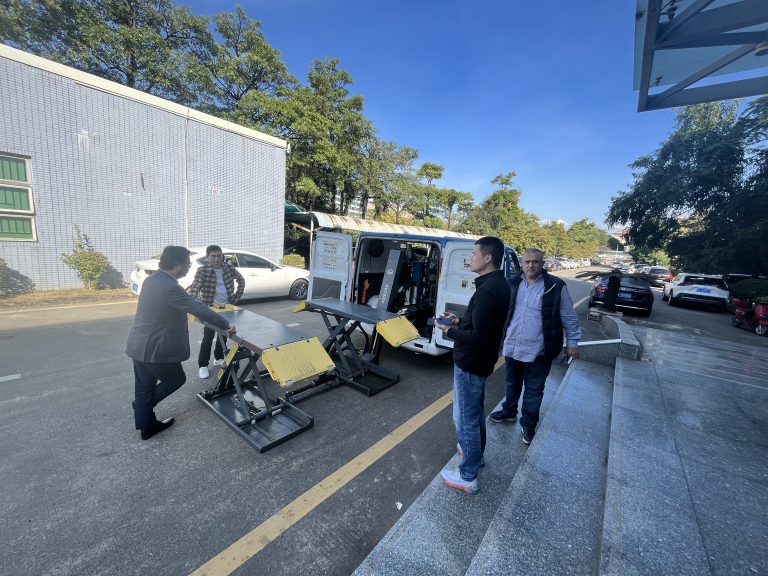We are excited to provide answers to frequently asked questions about our innovative system that is transforming mobility services. Our state-of-the-art technology empowers individuals and businesses to move faster, smarter and more efficiently. Read on for more information about the benefits of our system and how it can help you meet your transportation needs.
Our charging stations are designed to offer a variety of features that cater to diverse user needs. Here are some of the key benefits:
By providing a combination of these features, we deliver a comprehensive charging solution that is both versatile and adaptable to your unique needs.
Selecting the ideal EV charging station depends on several factors specific to your project. We’re happy to guide you through this process to ensure you get the best fit.
Here’s a breakdown of some key considerations:
In addition to these factors, we recommend considering:
By working collaboratively with you and understanding your specific project requirements, we can recommend the most suitable charging station model and configuration.
Absolutely! Our EV charging stations are designed to be versatile and adaptable for a variety of locations, including:
To ensure you receive the most suitable charging solution for your specific needs, our experienced team will conduct a thorough evaluation of your project. This allows us to recommend the optimal station type, power capacity, and number of charging units required.
We offer a range of charging station options to cater to diverse power level needs:
Understanding Charger Compatibility:
It’s important to note that each electric vehicle has a built-in onboard charger with a specific power handling capacity. This onboard charger communicates with the charging station to ensure it receives the optimal amount of power for safe and efficient charging. In simpler terms, there’s no risk of “overcharging” an EV – the onboard system regulates the process.
Choosing the Right Power Level:
Our team of experts can assist you in selecting the most suitable charging station type (Level 2 or Level 3) based on your specific project requirements, including factors like:
By working collaboratively with you, we can ensure you get the charging solution that perfectly aligns with your power level requirements and project goals.
Yes, our charging stations offer compatibility with a wide range of industry-standard charging protocols to ensure maximum vehicle coverage. This includes:
By supporting these diverse protocols, our charging stations provide a future-proof solution that can accommodate a wide variety of electric vehicles, regardless of their origin.
Absolutely! We offer a comprehensive suite of services to ensure a seamless experience with your EV charging station.
This includes:
By offering a combination of installation, training, and ongoing support, we strive to provide a complete solution that empowers you to confidently manage your EV charging infrastructure.

Yes, our charging stations are designed to be future-proof and compatible with evolving smart grid technologies. This includes the potential for bi-directional charging capabilities.
Understanding Bi-Directional Charging:
Bi-directional charging is an innovative technology that allows electric vehicles (EVs) to not only receive power from the grid but also feed excess power back into it. This two-way flow of energy offers several potential benefits:
Compatibility Considerations:
It’s important to remember that bi-directional charging requires compatibility on two fronts:
Future-Proofing Your Investment:
The landscape of EV technology is constantly evolving, and bi-directional charging is a promising development for a more sustainable energy future. By choosing charging stations designed with this potential in mind, you’re making a future-proof investment in your EV charging infrastructure.
Our Expertise:
Our team of specialists can help you navigate the compatibility aspects of bi-directional charging and determine if it aligns with your project goals. We can recommend charging station models that support this functionality, ensuring you have the right technology in place to embrace future advancements in smart grid integration
Maintaining your charging station is essential for ensuring optimal performance and longevity. Here’s a breakdown of the recommended maintenance practices:
For any additional maintenance needs or troubleshooting assistance, please don’t hesitate to contact our customer support team. We’re here to help you keep your charging station operating smoothly and reliably.
Certainly! We champion a sustainable approach to electric vehicle charging, and our mobile charging units are designed to integrate seamlessly with renewable energy sources.
Specifically, our mobile charging stations come equipped with built-in Maximum Power Point Tracking (MPPT) controllers. This allows for direct connection to solar panels, enabling the station to recharge using solar energy.
Benefits of Solar Integration for Mobile Charging Stations:
Working with You: Our team of experts can assist you in evaluating the feasibility of integrating solar power with your mobile charging station. We’ll consider factors like your location’s sunlight availability and desired level of energy independence to recommend the most suitable solar panel configuration for your needs.
Absolutely! We provide advanced charging stations designed for networked operation, offering access control and integrated payment functionalities.
Networked Charging Benefits:
Our stations connect seamlessly with network management systems, unlocking features like:
Access Control and Payments:
Future-Proof Compatibility: Our charging stations adhere to the Open Charge Point Protocol (OCPP), the industry standard for seamless communication with network management systems. This ensures compatibility with a wide range of platforms, future-proofing your charging infrastructure.
By providing these features, we deliver comprehensive networked charging solutions that cater to the evolving needs of electric vehicle management.

"Our networked charging infrastructure with access control and payment options makes EV charging convenient and user-friendly, encouraging more people to switch to electric vehicles."
At Sunming, we understand that making a significant investment in advanced and reliable systems can raise many questions. That’s why we’ve compiled a comprehensive list of the most frequently asked questions to address any concerns you may have before making your purchase. We want to ensure that you have all the information you need to make an informed decision about our top-quality systems.
To develop a customized EV charging solution, we require some initial information from you. This includes:
Once we have this information, our team of experts will conduct a thorough analysis to create a comprehensive charging solution proposal tailored to your specific requirements.
Absolutely! We offer comprehensive consultations to help you determine the ideal EV charging solution for your specific needs. Our team of experts will work closely with you to understand your application scenario. This includes details like:
By gathering this information, we can conduct a thorough analysis and develop a customized charging solution proposal that optimizes efficiency and perfectly fits your real needs.
Planning for an EV charging system installation involves some key steps:
Needs Assessment: We begin by collaborating with you to understand your community’s specific requirements. This includes factors like:
No, we do not provide financing options.
We offer a variety of secure payment options to suit your needs:
We recommend discussing your preferred payment method directly with us to ensure a smooth transaction process.
Our EV charging systems are covered by a comprehensive warranty to ensure your peace of mind. The warranty details are as follows:
Please refer to the product manual for the complete warranty details and specific terms.
Installation Services:
Installation Costs:
Maintaining Your Mobile Charger During Long-Term Storage:
General Maintenance: In addition to the recommended charging cycle, here are some general maintenance tips for all our charging stations:
Following these recommendations will help ensure the longevity and optimal performance of your mobile charger and any other charging station equipment you may have.
For any further maintenance inquiries or troubleshooting assistance, please don’t hesitate to contact our customer support team
yes, we do provide training and support services.